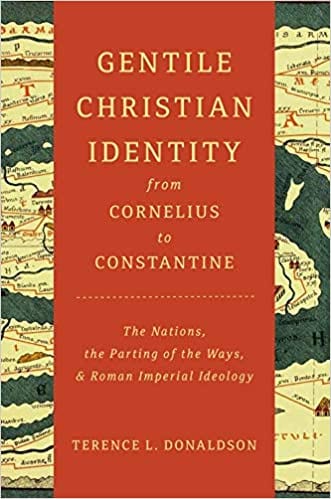Q. Any further thoughts along those lines?
A. At the same time, however, the model mentioned in the previous blog post is not the only model that is present in the NT. On many of the significant questions that the early church had to wrestle with, we find a diverse set of answers—a diversity limited by their core convictions, but diversity nonetheless. So in Acts, for example, Luke’s view of the church seems to involve a community of Jewish believers, faithful to the Torah (e.g., 21:20), combined with a “people for God’s name” taken from the gentiles, whose members are not required to take on the identity markers of the Jewish people (chap. 15). Paul himself, despite some statements that seem to move in the opposite direction, nevertheless stops well short of eliminating the distinction between gentiles and Jews, both in the present-day church and in the final redemption (which involves both “all Israel” and the “fulness of the gentiles”).
As I trace the development of gentile Christian identity from the early period through to Constantine, I draw attention to two sides of the process: the stunning success of the Christian movement in the Roman empire and among its constituent nations; and the disturbing aspect of this success in the extent to which it was made possible by a corresponding negative construction of Jewish identity. (Also disturbing is the way in which the church adopted empire-like identity patterns in the process.) This negative construction was the obverse of two forms of gentile Christian identity—one in which the gentile church identified itself as the fulfillment of the expectations concerning the nations in Israel’s scripture; the other in which it claimed the identity of Israel itself. Both of them were developed in harshly anti-Judaic terms that modern-day Christians simply need to denounce and reject. While it might be possible to reformulate both of them in terms that preserve much more positive identity space for Jews and Judaism, it seems to me that the second option above—the church as having inherited the identity of Israel, the people of God in the Old Testament—is more problematical, in view of the history of the church since the time of Constantine (especially its dealings with Jews and Judaism, but including its character as a gentile entity more generally). As I say in the book: “A status offered by Jews to gentiles in the context of a recognizably Jewish movement, led primarily by Jewish Christ-believers, is one thing. A status unilaterally claimed by gentile Christians—who identify themselves as an entity that is categorically non-Jewish and who engage in ungenerous and derogatory apologetic against the Jews—is quite another.”













